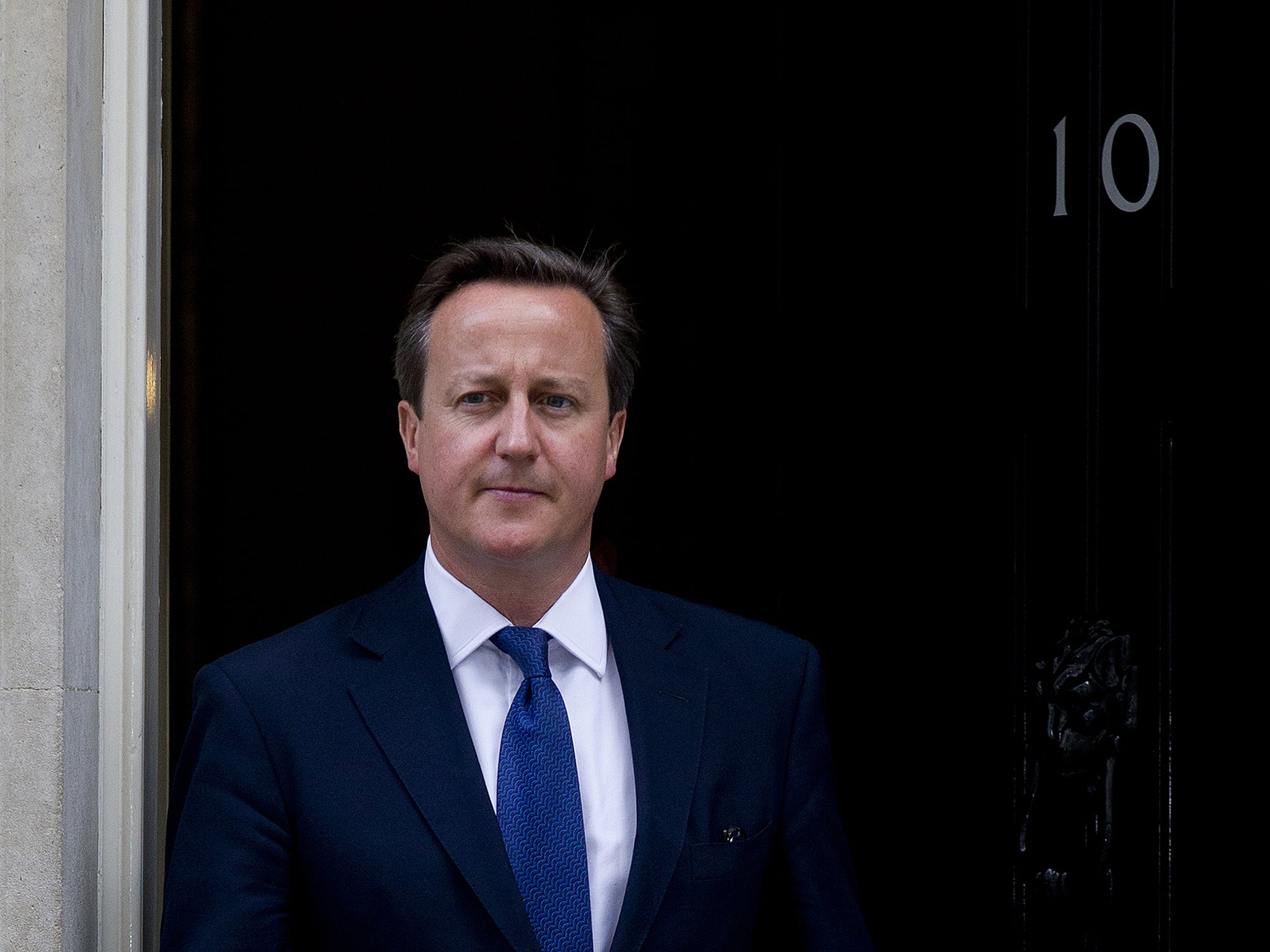General Election 2015: Tories under pressure to spell out whether they could strike a deal with Ukip in a hung parliament
Both Mr Cameron and Chancellor George Osborne refused to rule out co-operating with Ukip

Your support helps us to tell the story
From reproductive rights to climate change to Big Tech, The Independent is on the ground when the story is developing. Whether it's investigating the financials of Elon Musk's pro-Trump PAC or producing our latest documentary, 'The A Word', which shines a light on the American women fighting for reproductive rights, we know how important it is to parse out the facts from the messaging.
At such a critical moment in US history, we need reporters on the ground. Your donation allows us to keep sending journalists to speak to both sides of the story.
The Independent is trusted by Americans across the entire political spectrum. And unlike many other quality news outlets, we choose not to lock Americans out of our reporting and analysis with paywalls. We believe quality journalism should be available to everyone, paid for by those who can afford it.
Your support makes all the difference.The Conservatives are under growing pressure to spell out clearly whether they could strike a deal with Ukip in a hung parliament.
Nigel Farage described David Cameron as “somebody we can sit down with and talk to” in those circumstances, but insisted his party could never work with Labour because of its opposition to a referendum on EU membership.
Both Mr Cameron and Chancellor George Osborne refused to rule out co-operating with Ukip, prompting Labour to challenge the Prime Minister to reject the “poisonous proposition” of a deal with Mr Farage’s party.
The Tory chief whip Michael Gove slipped into German when he was asked about a possible arrangement with Ukip, saying: “Nein danke.”
However, the Defence Secretary, Michael Fallon, later took a more unequivocal line.
Asked if the Tories would be prepared to work if necessary with Ukip if necessary, he replied: “No. We have already said we are going for a majority government. We are not in the business of doing deals.”
Before the election Tory chiefs brushed off demands from some of their MPs and activists for informal local pacts with Ukip, which has eaten into Conservative support in many constituencies in the south and east of England.
Ukip’s two MPs are former Tory backbenchers and most of its top target seats, including Thanet South where Mr Farage is standing, are currently held by the Conservatives.
In a letter to Mr Cameron, the shadow Health Secretary, Andy Burnham, claimed it was clear the Tory leader was preparing to do a deal with Ukip and urged him to “come clean” on the subject.
“The real terms of a deal would see the end of the NHS as we know it,” Mr Burnham claimed.
“Your deal with Ukip is a poisonous proposition that would deny working people the care they rely on from a service they cherish.”
Mr Farage, who was considered to have performed strongly in Thursday night’s debate, ruled out a post-election deal with Mr Miliband, explaining: “He has said he will not give the British people a referendum on the great European question."
But the Ukip leader said the Prime Minister “at least has been forced into promising that, and so after the election he is somebody we can sit down and talk to”.
The Independent has got together with May2015.com to produce a poll of polls that produces the most up-to-date data in as close to real time as possible.
Click the buttons below to explore how the main parties' fortunes have changed:
All data, polls and graphics are courtesy of May2015.com. Click through for daily analysis, in-depth features and all the data you need. (All historical data used is provided by UK Polling Report)
Join our commenting forum
Join thought-provoking conversations, follow other Independent readers and see their replies
Comments